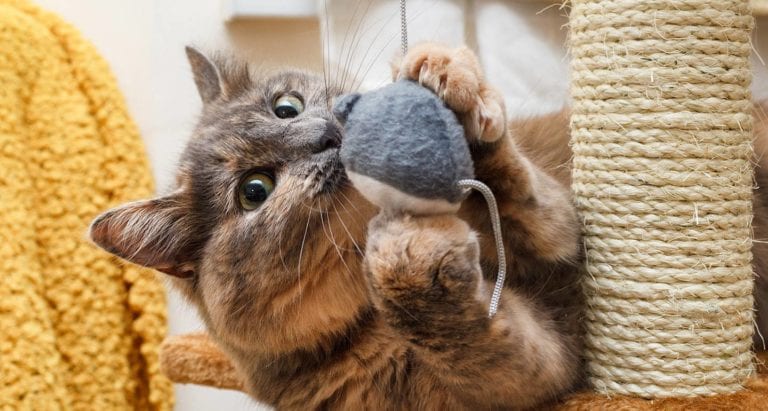Q:
My 13-year-old cat Molly has recently gone deaf and blind. Although I work at home and am able to sit with her frequently, she still cries every few hours. Is there anything I can do to help her adjust to her new situation? She sleeps under the coffee table and I’ve placed her food and water dishes next to it and her litterbox is only a few feet away. She also has arthritis, and it is very hard for her get around.
A:
Blind cats can live a long and happy life, but they do need extra care. Although their vision is important to them, cats have highly developed senses of smell and hearing, and they use these senses to navigate their environment. The fact that your cat is also deaf is a real double-whammy. Making certain they live a comfortable life is a challenge. In the last years of her life, my cat Ethel lost her eyesight and her hearing. I relocated her to my cat hospital and turned Exam Room 1 into her own personal retirement suite. She was able to live comfortably, due to the great deal of attention I (and my hospital staff) gave her. Your cat has apparently turned the spot under the coffee table into her little den, and you’re doing the right thing by placing her food bowl, water bowl and cat litter box very close by. I suspect she probably won’t wander too far from this safe area. If she does, you need to make certain that she can’t get into trouble with her wandering. For example, if there’s a kitty (or doggie) door, you’ll need to close it off so that she doesn’t wander outdoors. Access to stairs needs to be restricted so that she cannot tumble down them. You may want to consider obtaining a large playpen for her, and put her food bowl, water bowl, bed, toys and litterbox in the playpen.
Your cat will rely on her memory to navigate through your home, so do not rearrange furniture or leave items lying around that she might bump into, such as shoes or a pile of laundry. This might only confuse her. Don’t carry her from one area to another, as this might confuse her, too. Let her use her own memory to find her way around. Catnip-scented toys might be a real treat for her, since her sense of smell is still working.
Unfortunately, your cat has arthritis, and you say that it is hard for her to get around. Ask your vet about medication to help alleviate the pain and discomfort of arthritis. Supplements containing glucosamine and chondroitin are beneficial for arthritic cats, and meloxicam is a new pain medication that is now approved for use in cats and has been shown to be safe and effective for long-term use in managing chronic pain in cats.
I’m sure that many readers, after hearing about your cat being blind, deaf and arthritic, may be thinking that euthanasia is the only logical, humane option. Having taken care of my blind and deaf Ethel for almost two years, however, I do think it is worth the effort to see if you can provide a safe, loving environment for her so that her last years are meaningful.
By: Arnold Plotnick, DVM
Featured Image: Via Shutterstock/casey christopher
Share:









